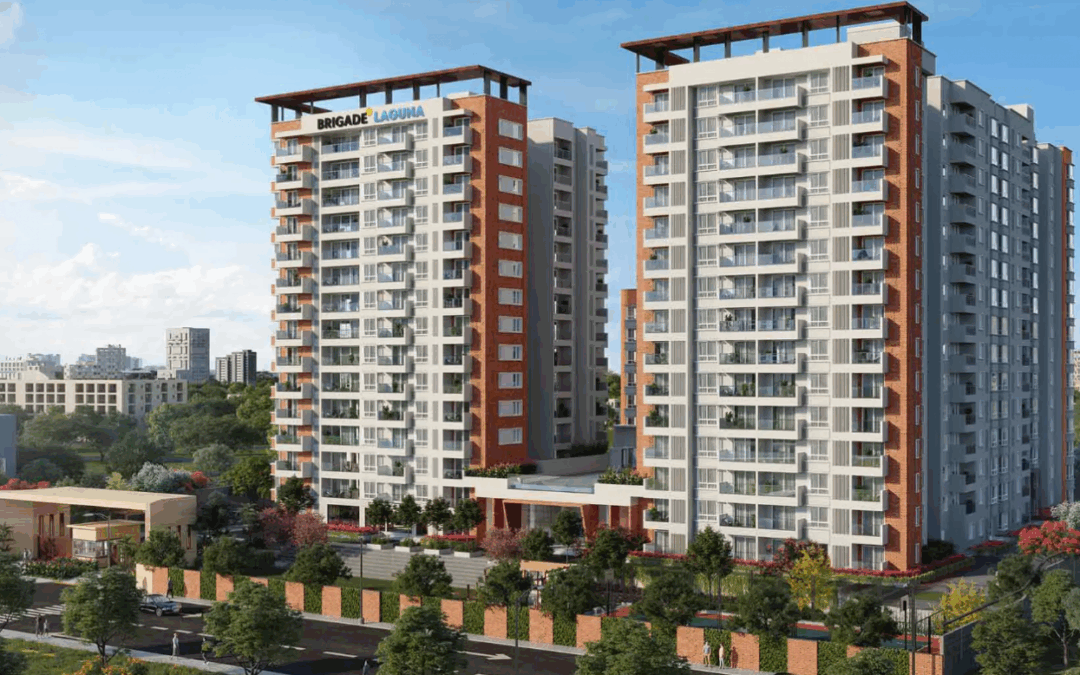Synopsis– The Karnataka government has doubled the property registration fee from 1% to 2% of the property value to address revenue shortfalls, which has sparked significant debate among property buyers, builders, and opposition parties. While the move aims to raise ₹2,500 crore to fund welfare schemes, the increased costs and administrative bottlenecks, including e-Khata delays, may further dampen the already slow real estate market.
The Karnataka government has changed the property registration fees by doubling the amount of 1% of the overall value of the property, to 2% of the property value. This proposal, effective August 31, 2025, is to make up for revenue shortfalls and has caused considerable discussion among property buyers, builders and opposition parties.
The Revenue Crisis Behind the Decision
The move is based on the fact that the Department of Stamps and Registrations has constantly missed revenue targets. The department has only collected ₹22,500 crore out of an ambitious target of ₹26,000 crore in the fiscal year 2024-25, which is a major shortfall. The same trend persisted in the first quarter of 2025-26, where collections were below the proportional annual target of ₹28,000 crore by 35%.
This shortage of revenue has been partially blamed on the flagship guarantee schemes of the Siddaramaiah administration which has cost the state about ₹96,000 crore in all since its inception. The five guarantee schemes such as Gruha Lakshmi (₹2,000 monthly assistance to women heads of home), Shakti (free bus travel for women), Anna Bhagaya (free grain distribution), Gruha Jyothi (free electricity up to 200 units) and Yuva Nidhi (monthly stipends to unemployed graduates) amount to a total of more than ₹52,000 crore per annum.
New Cost Structure for Property Buyers
In the new fee structure, the cost of transacting property has risen by 6.6 to 7.6 percent of the property value. The breakdown includes:
- Stamp duty: 5% of property value
- Registration fee: 2% (up from 1%).
- Cess and surcharge: 0.6%
- Total: 7.6%
This translates to heavy incremental expenses for the property buyers. For the property of 10 lakh, the accumulated government fees have risen from ₹66,000 to ₹76,000 – an extra burden of ₹10,000. In case of a 1 crore property, buyers have to pay 7.6 lakh as compared to 6.6 lakh before.
Comparative Analysis with Neighboring States
Karnataka still has one of the lowest property registration costs in South India despite the price increase. Inspector General of Registration and Commissioner of Stamps Mullai Muhilan M P said Tamil Nadu charges at 11% total fees and Kerala is at 10%, so even at 7.6%, Karnataka is still cheaper than those states. He also pointed out that 7.6% is similar to 7.5% in Telangana and Andhra Pradesh.
Impact on the Real Estate Sector
The real estate market has reacted with a great deal of concern over the fee increase. Following the announcement, property transactions have allegedly stopped in recent days and deed writers in Dharwad have indicated a huge drop in their activity. Builders and developers claim that this will further diminish buyer sentiment in an already slow market.
Industry Issues
- E-Khata Bottlenecks: Builders indicate that the e-Khata requirement for transactions has significant bottlenecks and delays on registering a property. They believe that no matter the increase in fees, it will make much more sense to solve the technical difficulties instead.
- Market Slowdown: The realty market in Karnataka has been slow for many quarters now, and insiders are concerned that with extra costs that property buyers will be turned off even more.
- Joint Development Agreements: The increase also relates to Joint Development Agreements (JDAs) and associated General Power of Attorney (GPAs) with JDAs, which can impact what are often sizable pieces of land in conjunction with JDAs.
Also read: Top Upcoming Micro-Markets in Bengaluru for Commercial Real Estate Growth in 2025
Political and Public Response
The fee hike has caused strong opposition by political parties and the public. Deputy Leader of Opposition Arvind Bellad criticized the Congress government for doing “anti-people policies,” which imposes more burdens on people “who are already struggling to cope with rising prices”. He lamented that price hikes impact poor and middle-class families more than anyone else which would now raise total costs for registration to a total of 7.6%.
Citizens have expressed frustrations that the government has added even more charges to documents registered days before this announcement as they are required to pay the difference amount through the official portal.
Government Justification and Expected Outcomes
- Revenue Generation: The state’s treasury would benefit directly with the new fee structure yielding an additional ₹2,500 crores to fund other welfare schemes and development of infrastructure requirements in the jurisdiction.
- Administrative Improvements: The administrative team has made the claim that increase in fees will help to rationalize, enhance administrative discretion, and provide more services to the general public.
- Comprehensive Positioning: The government claims that even though there has been a fee increase, it would still be fair compared to other states, stating that fees were lower.
Implementation
The increased fees related to multiple property document transfers are:
- Sale agreements
- Lease agreements
- Conveyance deeds
- Exchange deeds
- Gift deeds
- Trust deeds
In circumstances where the applicant has already paid their registration fees, the government is now directing that they’ll be required to pay the difference amount on the official portal. If the applicant has already submitted their documents for verification, then their registration fees would now be calculated based on the 2% increase from the last agreement they made.
Final Thoughts
The doubling of property registration fee to 2% has increased overall transaction cost to 7.6%. The government anticipates an extra ₹2,500 crore in revenue to fund welfare schemes, but citizens and the real estate sector are in the opposition. The increase might further slow down market action unless the state can clear administrative bottlenecks such as delays in e-Khata. The hike risks weakening the buyer sentiment.
Written by Prajwal Hegde






